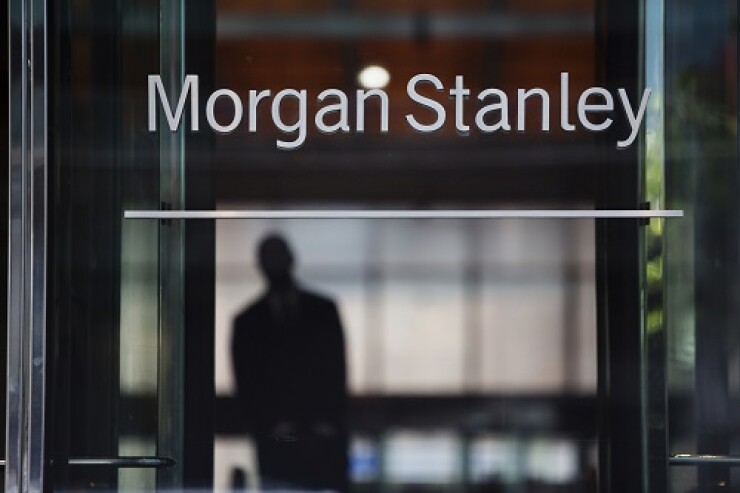
Morgan Stanley won $430,000 from a former wirehouse advisor for breach of a promissory note, an arbitrator ruled this week.
Advisor Fletcher Bookout, who has 20 years of industry experience, worked at Morgan Stanley twice, from 1998 to 2001 and again from 2012 to 2015, according to FINRA BrokerCheck records. In between his stints at Morgan, he worked at Lehman Brothers and Wells Fargo Advisors.
Bookout, who is based in Dallas, left Morgan earlier this year and joined First Financial Equity Corporation, a wealth management firm headquartered in Scottsdale, Ariz.
Morgan filed its arbitration claims in April shortly after he left the firm. Bookout did not have a lawyer represent him, attend the hearings or file an answer to the Morgan's charges, according to the arbitration award.
The award indicates that Bookout received copies of Morgan's claim as well as an overdue notice and notification from the arbitrator on the case, C. Sumpter Logan, by certified mail.
The arbitrator ruled that Bookout owed Morgan $430,000 for the promissory note and interest, plus an additional $3,000 in attorney and arbitration fees.
Bookout did not return calls seeking comment.
Morgan did not return calls seeking comment.
STAY HOME OR GO IT ALONE?
For a variety of reasons, advisors sometimes decline to participate in the arbitration process. An ex-advisor recently opted not to participate in an arbitration case in which Merrill Lynch sought approximately $480,000 for breach of a promissory note.
Advisors who don't comply with an arbitration award could face consequences, including additional action in the courts and a FINRA license suspension.
"It amazes me when an advisor doesn't show up because there will be a collection made," says Tom Lewis, an attorney with Stevens & Lee. "It's a huge circle down when the advisor doesn't show up."
Lewis says that even if an advisor cannot afford an attorney, they should at least attend the hearings in order to present a defense. Arbitrators can even be sympathetic to an advisor representing him or herself, Lewis says.
"There have been cases where [advisors] present their story, and arbitration panels will give them some relief," he says.
Read more:





